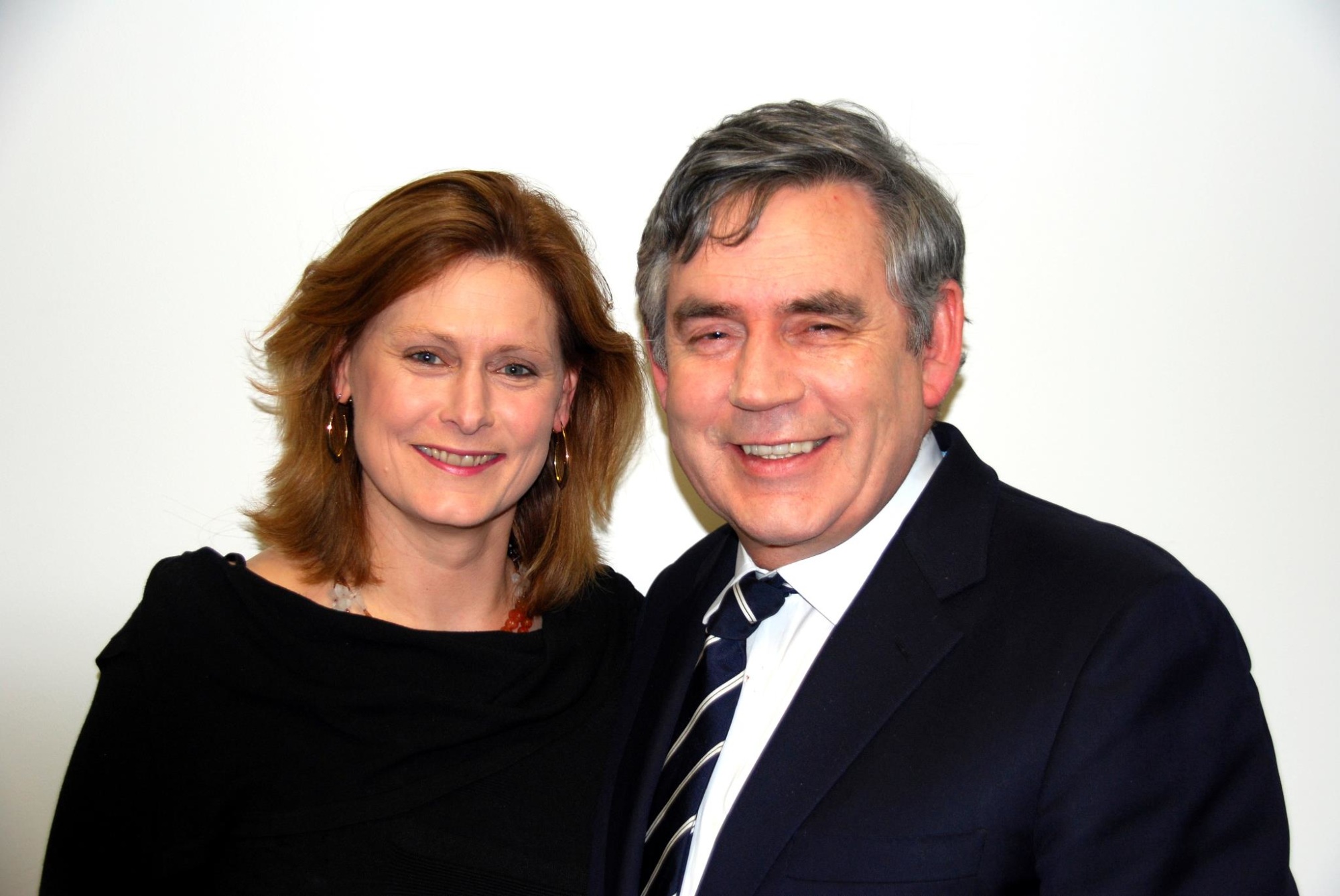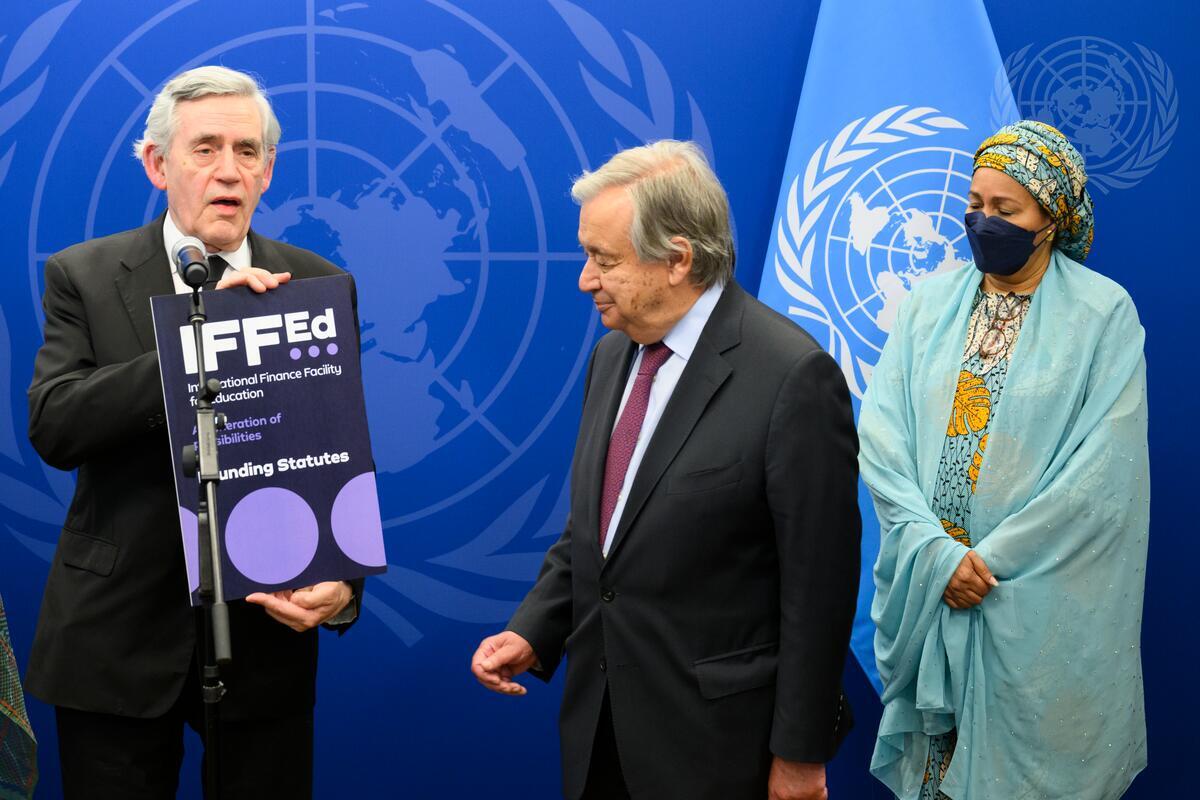
So much to shout about: what the Oslo Education Summit achieved
Education funding, Education in emergencies, Gordon Brown, Up for School or #upforschool campaign
It brought together world leaders, education ministers, international organisations and civil society. Its goal was to bolster global co-operation on education.
So what exactly did the Oslo Education Summit achieve? The quick answer is: a lot. At the end of a frantic two days of speeches and meetings, pleas and promises in the Norwegian capital, some key outcomes had emerged.
A big thanks must go to Norway, under the leadership of Prime Minister Erna Solberg and Foreign Minister Børge Brende, for hosting the summit. Attended by United Nations Secretary-General Ban Ki-moon and other big players from the international community, the meeting focused on those who really need help – the 59 million children out of school because of child labour, child marriage, discrimination and conflicts.
In his concluding remarks, Mr Brende announced a commitment for urgent action and Norway doubling its aid to education. He added: “What is holding back progress is first and foremost a lack of commitment. The Oslo Summit has helped mobilise this commitment.”
The full detail of that commitment is contained in the Oslo Declaration. Here is a quick look at the major outcomes from the summit and the ongoing campaign to get every child in every country into school and learning.
1. THE FUNDING CRISIS
Overseas development aid increased by 9% from 2010 to 2013. But aid for basic education fell by 22%, from an already-low $4.5 billion to $3.5 billion.
Erna Solberg announces new education funding commission Picture: NorwayMFA/ Espen Røst
The summit agreed to the launch of an International Commission on the Financing of Global Education Opportunities. Financed by Norway, the commission was called for by Prime Minister Solberg, President Michelle Bachelet of Chile, President Joko Widodo of Indonesia, President Peter Mutharika of Malawi and UNESCO Irinina Bokova. It will be chaired by Gordon Brown, the United Nations Special Envoy for Global Education.
2. EDUCATION IN EMERGENCIES
Last year only 1% of all humanitarian aid went to education in emergencies, which includes conflicts and natural disasters.
For months, campaigners around the world have been calling for a fund to be established so that emergency situations could be dealt with quickly – such as the Syrian refugees who fled to Lebanon or victims of the Nepal earthquake.
More than 40 of the world’s leading charities and campaign organisations joined forces to call on world leaders to create an urgent fund to provide education for children affected by wars and natural disasters.
At Oslo, the Global Humanitarian Platform and Fund for Education in Emergencies was agreed. Leaders decided to move forward on developing a system to improve how aid is provided in emergencies and urgently address the gap in funding of education in emergencies.
Jan Egeland of Norwegian Refugee Council – one of those who called for a fund – signs #UpForSchool Petition
The next stage of work is now underway – to present options to the United Nations General Assembly in September, with a final solution by the end of 2015.
EU Commissioner for Humanitarian Aid and Crisis Management Christos Stylianides announced his objective to dedicate 4% of the EU humanitarian aid budget to education for children in emergency situations. He said: “No child should miss out on education. We want to make education a priority in emergency situations so that more children can have access to learning, to teachers, to a brighter future. I am truly committed to this cause”.
3. NEW FUNDING PLEDGED
The government of Norway pledged to double its international development assistance for global education.
There has also been increased funding for Syrian refugees announced in the past few days.
The United Kingdom announced in the run-up to the summit that it will give an additional £100 million in aid to help those displaced by the Syria crisis – including an increase in funding to up to £20 million for education in Lebanon in preparation for school enrolment in September.
Downton Abbey star Laura Carmichael visits tented learning space for Syrian children in Lebanon on A World at School trip
Norway will provide an additional $10 million to Syrian refugee children in Lebanon, said Mr Brende.
The United States also indicated it would give additional support to Syrian refugees in Lebanon for the new school year for Syrian refugees.
Additionally, several countries supported a “September Surge” to put new and additional resources to help Syrian refugees go to school in Lebanon.
So that’s the big news from the Oslo Education Summit. But none of the above could have been achieved without the amazing support of people around the world who care passionately about the education plight of children.
Here are some of the incredible numbers that have added together to make a real difference.
40
More than 40 of the world’s biggest charities and campaign organisations called for the education in emergencies fund. They included Dubai Cares, Oxfam, World Vision, the Norwegian Refugee Council, Plan International and Save the Children.
63,0000
The number of emails sent by members of the campaigning website Avaaz to leaders attending the summit.
Eight million
Voices heard at Oslo through the #UpForSchool Petition. Delivered to the summit by Hellen Griberg, one of A World at School’s Global Youth Ambassadors, the youth-led campaign calls on world leaders to keep their promise to get every girl and boys into school and learning.
Of the total, 1.8 million names were gathered by Muslim Aid around the world including in Gaza and Lebanon. Our Global Youth Ambassadors have personally collected more than 250,000 signatures.
One superstar
Canadian singer Justin Bieber asked his millions of followers on Facebook to sign the #UpForSchool Petition.
Two million
Number of people who played a special #UpForSchool tournament on Angry Birds – many of them supported the petition. Above is Peter Vesterbacka, Mighty Eagle of Angry Birds makers Rovio Entertainment, with Gordon Brown and Hellen Griberg in Oslo.
31,000
Supporters from anti-slavery campaign Walk Free who said education is a key way to stop slavery.
Erna Solberg, Ban Ki-moon and MDG Advocacy Group’s Paul Kagame in Oslo Picture: NorwayMFA/Espen Røst .jpg
And – just in case we forget why all this is so vital – here are two of the most telling numbers of all.
28.5 million
The number of children out of school around the world because of conflicts. The figure is revealed in an important new report by the Norwegian Refugee Council and Save the Children. It highlights that, despite increased recognition of the role of education in humanitarian response, the sector remains woefully underfunded.
Tove Wang, CEO of Save The Children Norway, chairs the session on education in emergencies
59 million
The number of children out of school, according to the latest figures. New research from UNESCO showed that the number of children out of school is on the rise due to conflicts and emergencies. Before the conflict in Syria, nearly every child was enrolled in primary school. Now, new data shows that just two years of civil war left 1.8 million children and adolescents denied an education, erasing all education progress since the start of the decade.
More news

